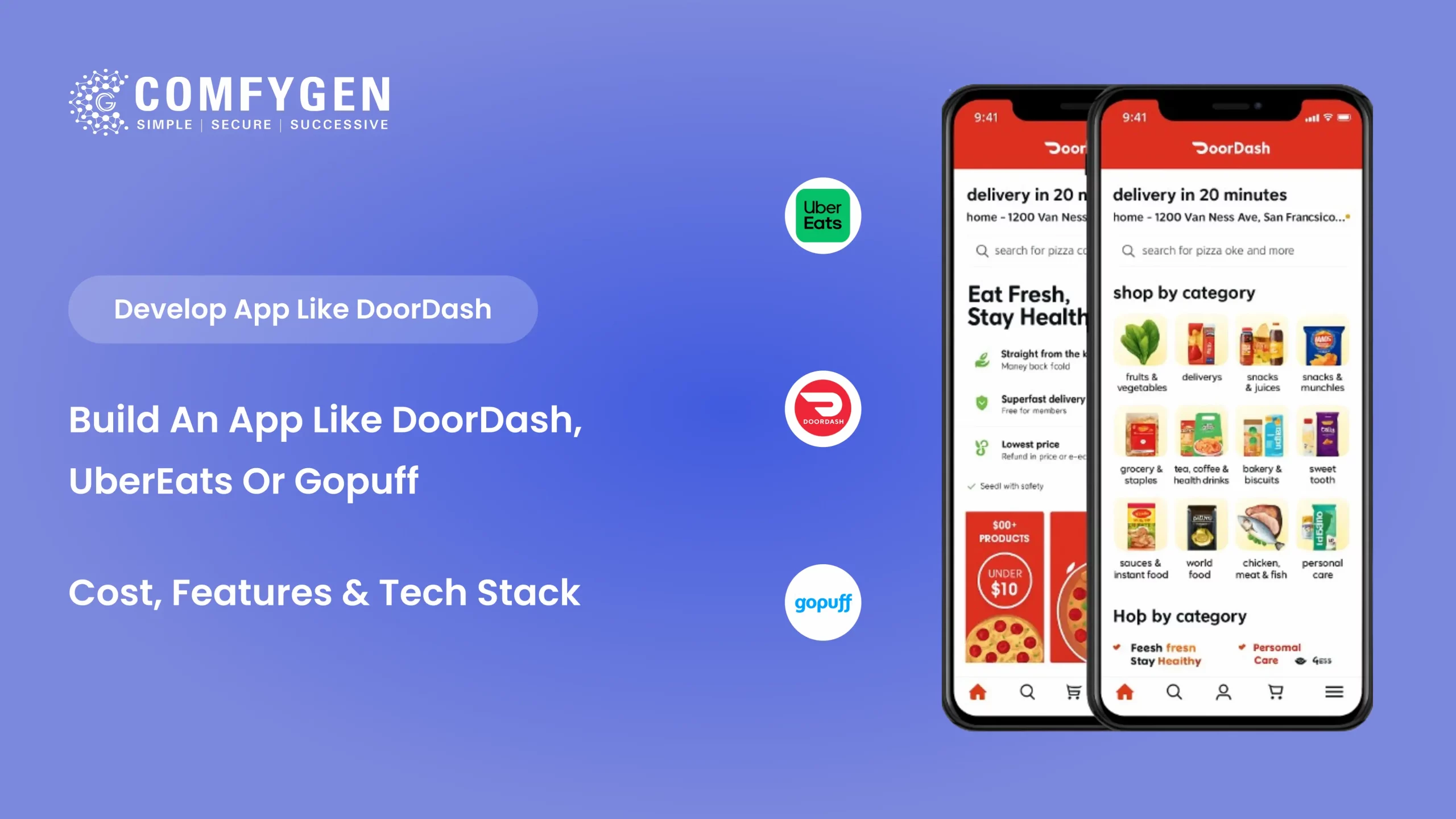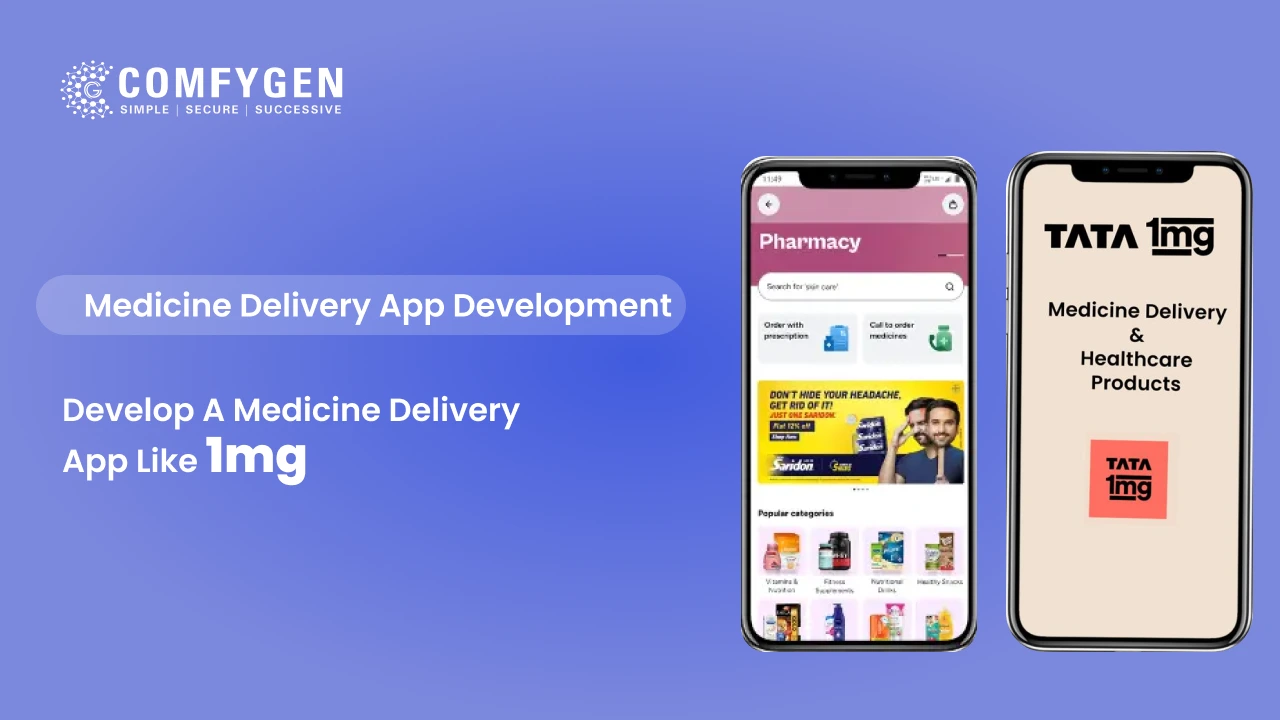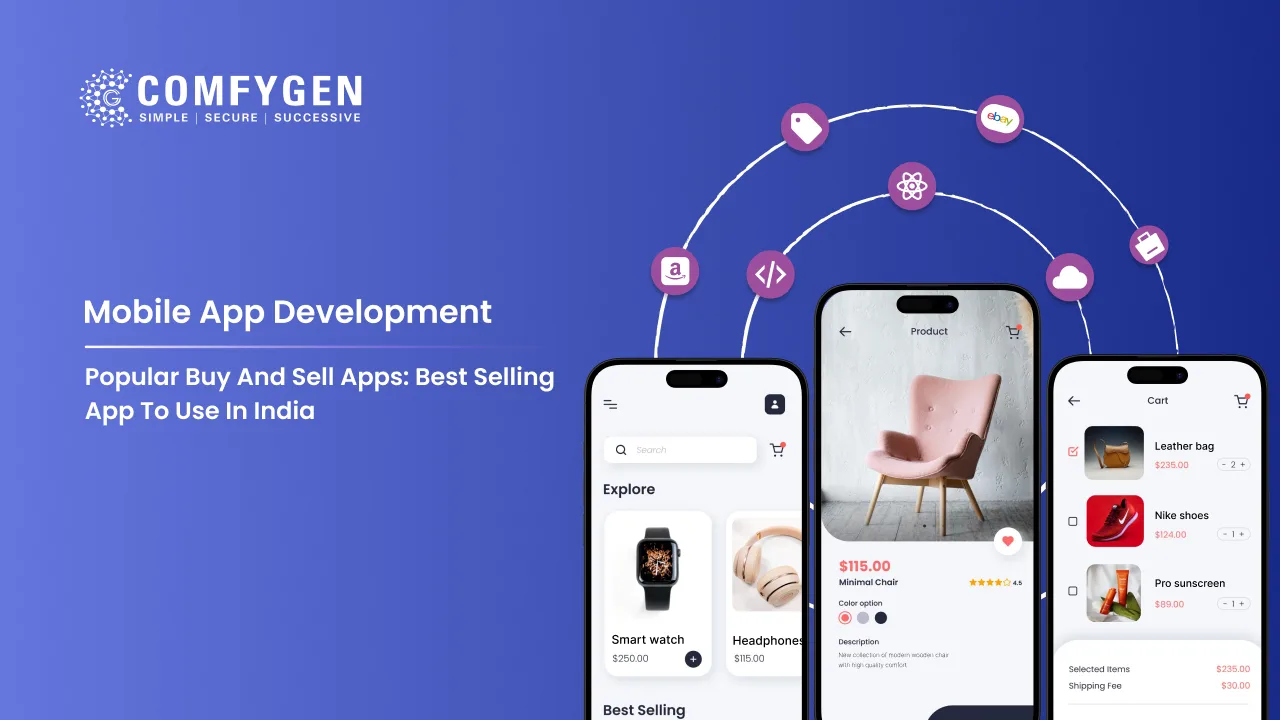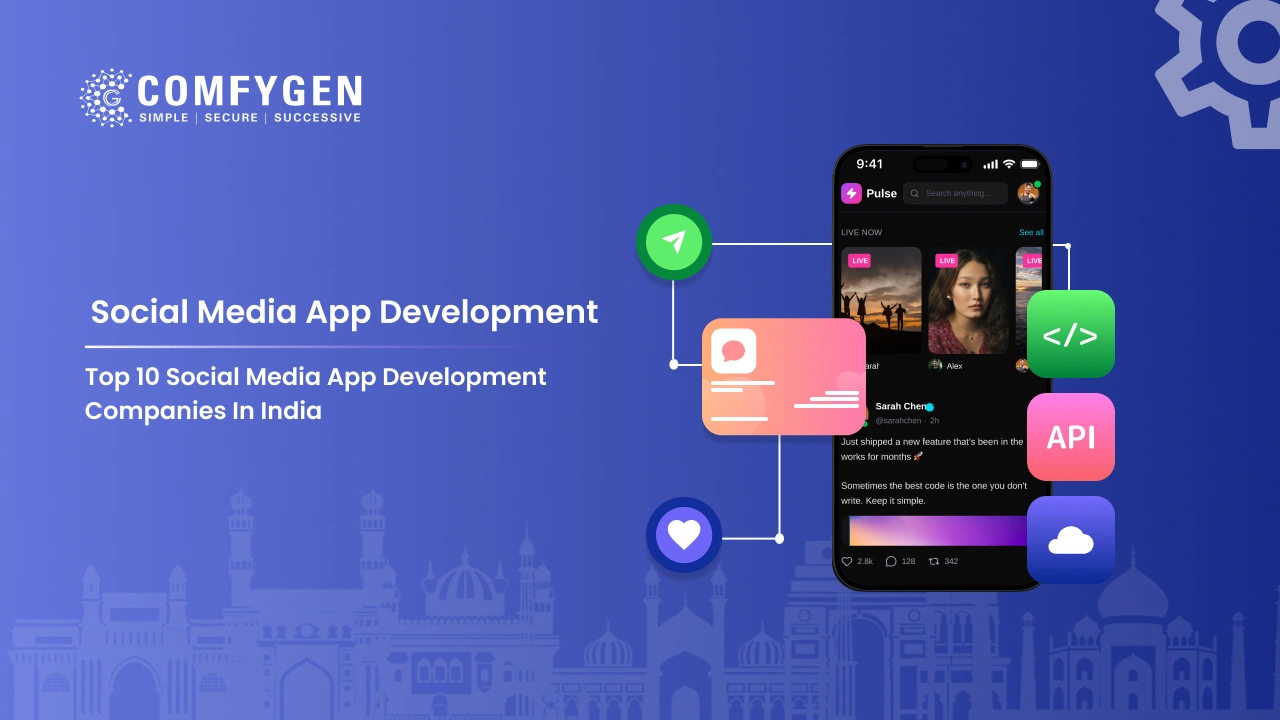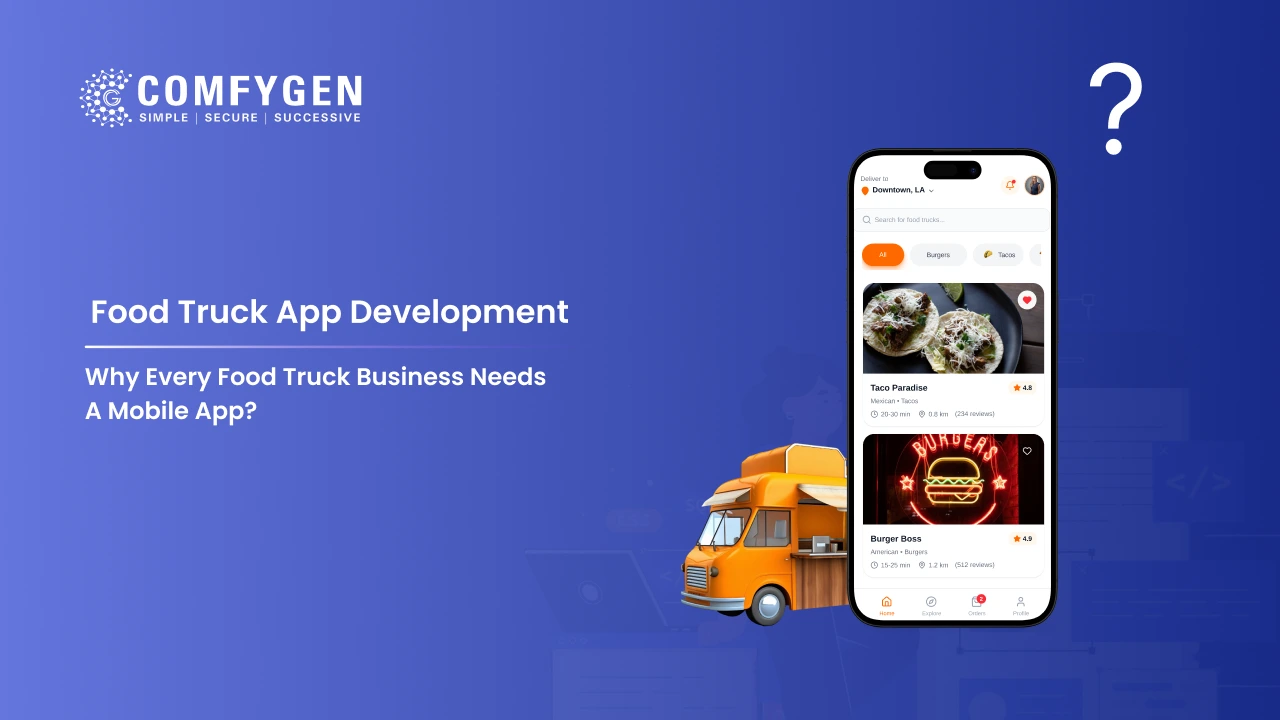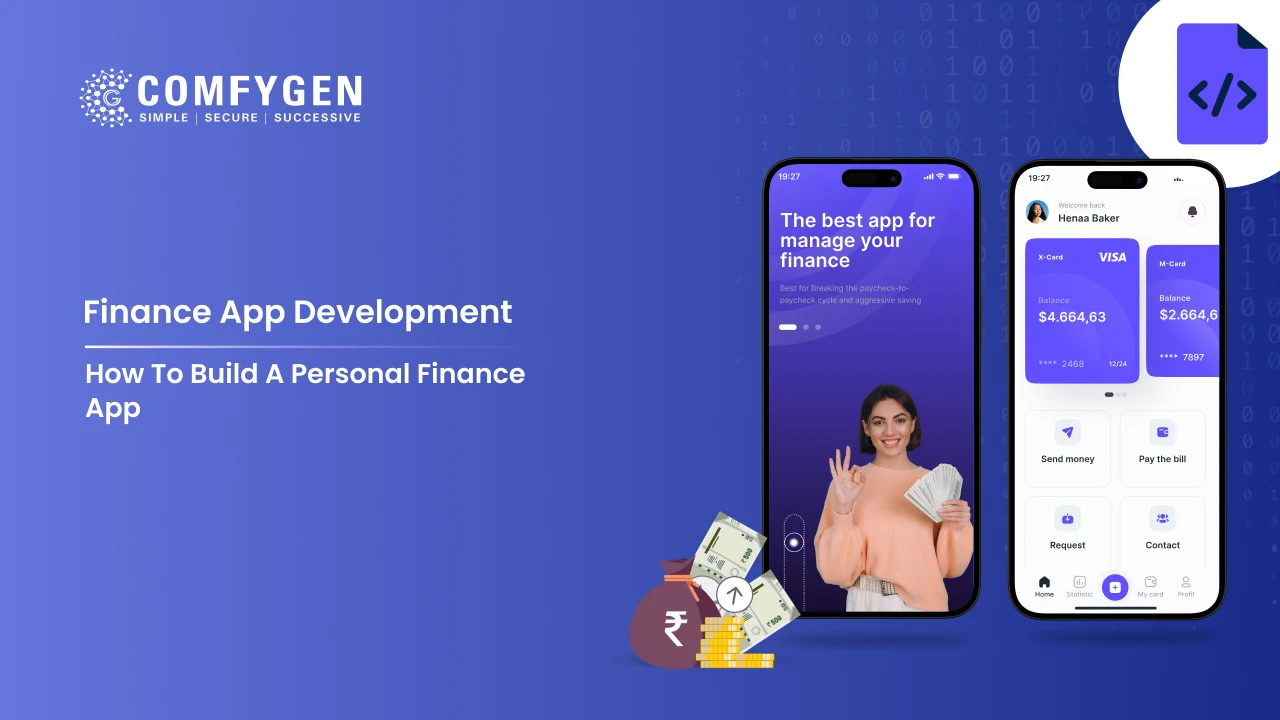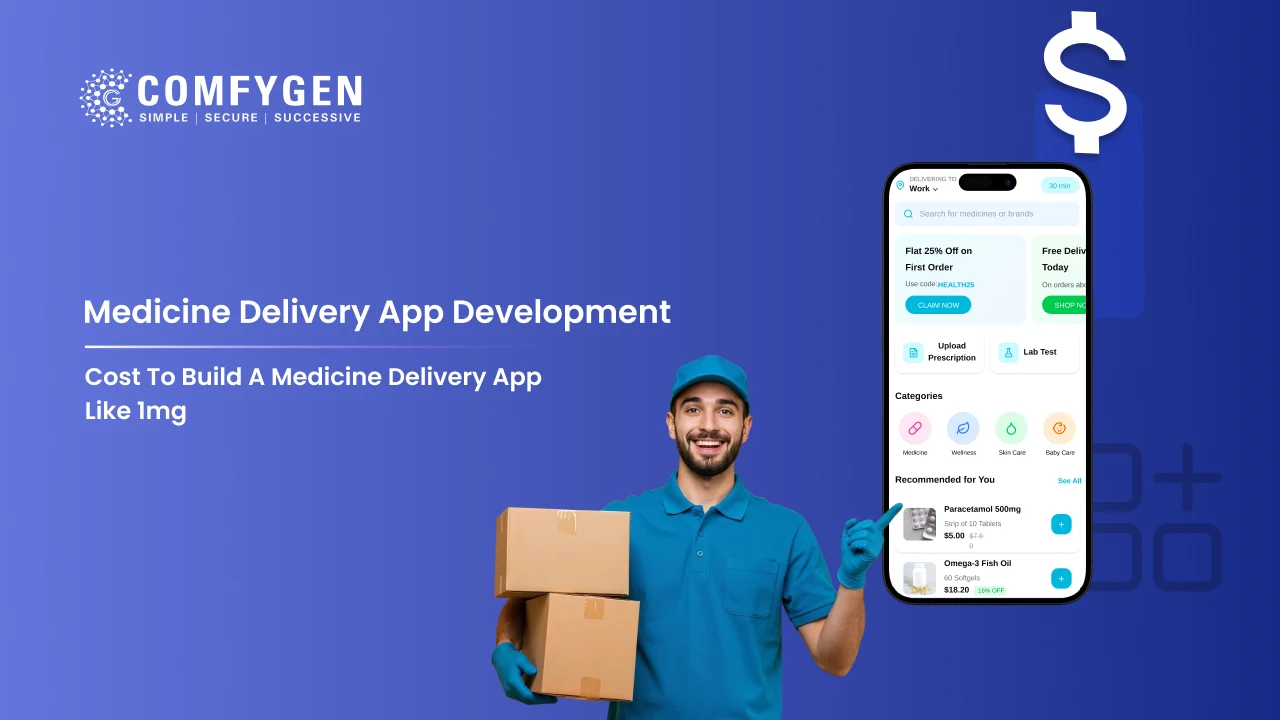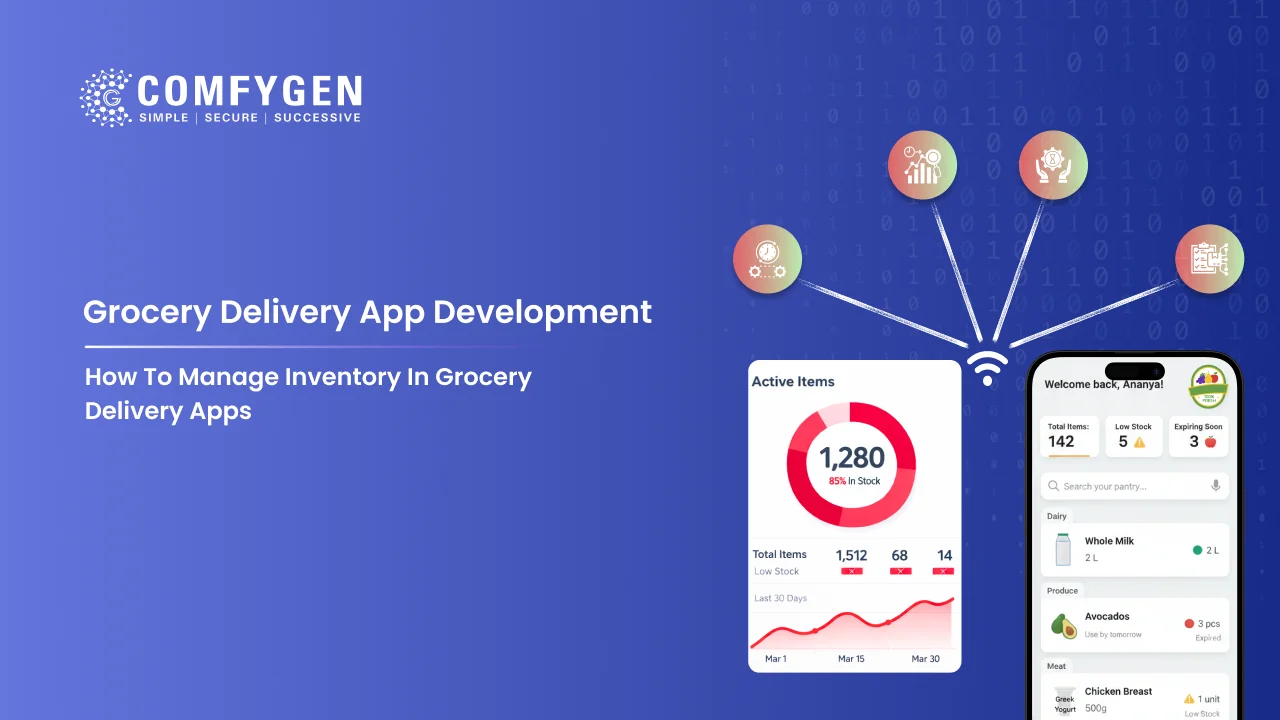App maintenance typically costs $2,000 to $10,000 per month, covering server hosting, bug fixes, feature updates, security patches, and ongoing technical support — depending on the app’s size and complexity.
How to Make an App Like DoorDash, Uber Eats, or GoPuff
In a world where instant fulfilment drives consumer habits, Make an apps like DoorDash, Uber Eats, and GoPuff have change the way people access food, groceries, and essentials.
But what if you want to develop a quick commerce app like DoorDash or create something similar to Uber Eats or GoPuff?
In this guide, we’ll walk you through how to make your own on-demand instant delivery app, covering:
-
How these top delivery apps work
-
Key features your app must have
-
The technologies they use
-
Estimated development costs
-
Why these apps are so successful
-
And how you can break into this booming market
Let’s dive in.
Why Build an App Like DoorDash, Uber Eats, or GoPuff?
The demand for on-demand delivery app has exploded — and it’s not slowing down.
Apps like DoorDash, Uber Eats, and GoPuff have changed the way we eat, shop, and live. Whether it’s late-night burgers or emergency essentials, people want it fast, and they want it delivered.
Here’s why building an Instant delivery app like DoorDash or GoPuff makes total sense right now:
-
Consumer Behavior Is Locked In
Users now expect instant delivery. From lunch to laundry detergent, convenience is king — and apps similar to Uber Eats are winning by making life easier.
-
A $500+ Billion Market by 2030
The global food and grocery delivery market is projected to skyrocket. That means huge potential for startups creating apps like GoPuff or apps similar to Uber Eats.
-
You Don’t Need to Be the Next Uber
Start small. Build a hyper-local app. Solve a local problem better than the big guys. With the right tech and execution, your app can stand out in your city or niche.
-
There’s Room for Innovation
While apps like DoorDash and GoPuff are popular, they don’t cover every gap. Maybe it’s plant-based meals, zero-waste grocery delivery, or bilingual ordering. The opportunities are endless.
=> If you’ve ever thought, “Why isn’t there an app for this?” — this is your moment.
Business Models Behind DoorDash, Uber Eats & GoPuff
Before you build your own delivery app, it’s crucial to understand how today’s leaders make money. Here’s how apps like DoorDash, Uber Eats, and GoPuff structure their business models:
| App | Focus Area | Revenue Streams | Delivery Model |
| DoorDash | Restaurant Food | Commission, Delivery Fees, DashPass Subscription | Marketplace + Local Logistics |
| Uber Eats | Food & Alcohol | Commission, Surge Pricing, Eats Pass | Marketplace + In-House Drivers |
| GoPuff | Essentials & More | Product Markup, Delivery Fees | Own Warehouses & Delivery Fleet |
Each app follows a unique approach to on-demand delivery:
-
Apps like DoorDash partner with local restaurants and rely on independent drivers to handle last-mile delivery.
-
Apps similar to Uber Eats tap into Uber’s powerful logistics network, combining food delivery with smart routing and dynamic pricing.
-
Apps like GoPuff take a different route — owning micro-fulfillment centers and offering 24/7 delivery of everyday essentials from their own inventory.
This diversity shows there’s more than one way to succeed in the delivery space — the key is choosing the model that fits your market.
Ready to Build Your Own
Fast Delivery App Like DoorDash?
Contact Now
How to Develop an App Like DoorDash, Uber Eats, or GoPuff
Building a successful delivery platform doesn’t require reinventing the wheel — it requires the right strategy, features, and focus. Here’s how to create an app like DoorDash, Uber Eats, or GoPuff from the ground up:
Core Features to Include :
| Customer App | Delivery Driver App | Vendor App | Admin Panel |
| Real-time order tracking with ETA | Accept or reject incoming orders | Add, update, or remove menu/inventory items | Manage users: customers, drivers, vendors |
| Multiple payment methods (card, wallet, COD) | Route navigation via Google Maps or Waze | Order alerts with accept/reject functionality | Monitor live orders, cancellations, and escalations |
| Schedule or instant delivery | Delivery status updates (picked, delivered) | Manage stock availability and out-of-stock updates | Configure delivery zones, timings, and pricing |
| Ratings, reviews, and reorders | Daily earnings dashboard & payout tracking | Set special offers or limited-time promotions | Access business analytics & performance insights |
| Loyalty rewards or promo codes | Online/offline toggle for availability | Track order status, history, and customer feedback | Set global policies: commissions, taxes, and app settings |
Technology Stack (Used by Top Delivery Apps in the USA)
Top-tier delivery apps like DoorDash, Uber Eats, and GoPuff are built on robust, scalable technologies. If you’re planning to build an app like DoorDash or an app similar to GoPuff, here’s the modern tech stack you should consider:
| Layer | Technology | Purpose |
| Frontend (Mobile) | React Native, Flutter | Cross-platform app development (iOS + Android |
| Backend | Node.js, Django, Ruby on Rails | Server-side logic, APIs, user & order handling |
| Database | PostgreSQL, MongoDB, Redis | Store user data, order history, session caching |
| Real-Time Features | Firebase, Socket.IO, Twilio | Live chat, notifications, delivery updates |
| Location Services | Google Maps API, Mapbox | Real-time tracking, driver navigation |
| Payments | Stripe, Braintree, PayPal | Secure online transactions |
| Cloud Hosting | AWS, Google Cloud Platform (GCP), Azure | Scalable infrastructure for app deployment |
| Push Notifications | OneSignal, Firebase Cloud Messaging (FCM) | Order alerts, promotions, user engagemen |
| Analytics | Mixpanel, Google Analytics, Amplitude | User behavior insights, performance tracking |
If you’re planning to build a similier fast delivery apps like Instacart, Postmates or Shipt, scalability and real-time functionality should be your top priorities. Choose tools that can grow with your business.
Ready to Make Your Own
GoPuff like Essentials App?
Contact Now
How Much Does It Cost to Develop an App Like DoorDash or GoPuff?
Wondering how much it costs to make an app like DoorDash, GoPuff, or Uber Eats? The answer depends on several factors — but here’s a realistic breakdown to help you budget smart.
Cost Depends On:
-
Location of your development team (U.S., Eastern Europe, India, etc.)
-
Platform choices — iOS, Android, Web, or all
-
Number of features and app complexity
-
Backend architecture and integrations
Estimated Development Costs (USD)
| Module | Estimated Cost |
| Customer App | $20,000 – $40,000 |
| Driver App | $15,000 – $30,000 |
| Vendor Dashboard | $10,000 – $20,000 |
| Admin Panel | $10,000 – $15,000 |
| Backend & APIs | $20,000 – $30,000 |
| UI/UX Design | $5,000 – $10,000 |
| QA & Testing | $5,000 – $8,000 |
| Total Estimate | $85,000 – $150,000+ |
Start lean with an MVP (Minimum Viable Product). Focus on essential features, launch fast, and scale based on real customer feedback.
Want to Develop Your Own
Instant Delivery App Like Uber Eats
Contact Now
Where Are Apps Like DoorDash, Uber Eats & GoPuff Most Popular and So Successful?
Before you build an app like DoorDash or explore models similar to GoPuff, it’s important to understand not just where these delivery giants thrive — but why they dominate the space. It’s not just about speed; it’s about strategy, smart tech, and a relentless focus on user experience.
DoorDash – Owns over 65% of the U.S. food delivery market, making it the undisputed leader in American cities and suburbs.
- Hyper-focused on suburban areas often underserved by other apps
- Smart driver routing = faster deliveries
- DashPass membership keeps users loyal with free deliveries
Uber Eats – A true global contender. Popular in the USA, UK, Japan, Brazil, France, and more. Great model if you’re eyeing international expansion.
- Built on Uber’s world-class logistics engine
- Strong restaurant partnerships across the globe
- Uses in-app promos and dynamic pricing to drive demand
GoPuff – Dominating across U.S. cities, especially among Gen Z and millennials. Known for its 24/7 delivery of snacks, drinks, and daily essentials from owned warehouses.
- Fully vertically integrated — they own their inventory and delivery fleet
- 24/7 access to snacks, drinks, and essentials
- Prioritizes speed and warehouse proximity to users
These insights can guide your market entry — whether you’re targeting hyper-local food delivery or on-demand convenience apps.
How to Succeed with Your Own App Like DoorDash, Uber Eats, or GoPuff
Want to build a successful quick commerce app like DoorDash, GoPuff, or Uber Eats? It’s not just about launching an app — it’s about launching smart, scaling fast, and delivering real value to users.
The on-demand delivery space is booming, but it’s also competitive. To stand out, you need more than just great code — you need a game plan that balances local strategy, great UX, and operational efficiency.
Here’s How to Grow Your Delivery App Like a Pro:
1. Start Small, Think Big
Begin with one city or region. Whether it’s food, groceries, or essentials, apps like GoPuff and DoorDash nailed their early growth by mastering local markets before scaling nationwide.
2. Solve a Specific Problem
Don’t try to be everything for everyone. Focus on a niche:
-
Late-night food for college campuses
-
15-minute delivery of daily essentials
-
Hyperlocal organic groceries
This approach helps create a loyal user base early on.
3. Partner Smart, Grow Fast
Build strong, win-win partnerships with:
-
Local restaurants
-
Grocery delivery or convenience stores
-
Independent drivers or fleet providers
These partnerships fuel the supply side of your app and help you stay competitive.
4. Launch With Value-Driven Promotions
Offer first-order discounts, free delivery trials, or refer-a-friend bonuses. This not only encourages downloads but builds habitual use — key to retention.
5. Prioritize Fast, Reliable Delivery
No matter how great your app looks, delivery speed and reliability are what keep users coming back. Use smart routing and real-time tracking to improve efficiency — just like apps similar to Uber Eats do.
6. Leverage Data and Analytics Early
Track everything: user behavior, order trends, delivery times, and churn. Apps like DoorDash use data-driven decisions to tweak UI, improve delivery routes, and personalize offers — and so should you.
Build Your App with Our Delivery App Experts
At Comfygen Technologies, we don’t just develop apps — we build scalable, feature-rich platforms that mirror the success of apps like DoorDash, Uber Eats, and GoPuff. Whether you want a full ecosystem or a lean MVP, our experts are ready to help you bring your idea to life.
Contact Comfygen Technologies today and take the first step toward launching the next big on-demand delivery app.
FAQs
As of late 2024, DoorDash had around 42 million monthly active users, up from 37 million in December 2023 By early 2025, that number grew further to approximately 46.3 million users Globally, DoorDash has surpassed 10 billion cumulative orders and now operates in over 30 countries, including its newly announced acquisition of Deliveroo, which will extend its presence to around 45 countries When launching a DoorDash-like app, you must ensure: Driver background checks and valid insurance Food safety compliance with local health regulations Secure payment processing (PCI-DSS compliance) Clear Terms of Service, Privacy Policy, and service-level agreements (SLAs)
How to build an app like DoorDash?
Start by defining your target market and delivery model, then hire a skilled development team to build the customer, driver, and vendor apps. Include features like real-time tracking and secure payments, and launch with a minimum viable product (MVP) to test and scale.
How much does it cost to develop DoorDash app?
Developing an app like DoorDash typically costs between $85,000 and $150,000+, depending on the app’s complexity, features, platforms (iOS/Android), and whether the development team is in-house or outsourced.
How much peoples use doordash in worldwide?
Why is DoorDash so successful?
DoorDash is successful due to its early focus on underserved suburban areas, which gave it a strategic edge. Combined with strong logistics technology, the DashPass subscription program, and a user-friendly app experience, it built high customer loyalty and market dominance.
How to create an app similar to Uber Eats?
To create an app like Uber Eats, plan your business model, design separate apps for customers, delivery drivers, and restaurants, and integrate key features like order tracking, in-app payments, and GPS. Use scalable technologies and launch with an MVP to test in a specific market before expanding.
Does DoorDash use AI?
Yes, DoorDash uses AI and machine learning for route optimization, delivery time predictions, customer personalization, fraud detection, and demand forecasting to improve efficiency and user experience.
Can I do my own DoorDash?
Yes, you can build your own version of DoorDash by creating a food or essentials delivery app. You'll need a solid business model, local vendor partnerships, and a reliable tech team to develop customer, driver, and admin platforms with features like real-time tracking and payments.
Who is the best development company for a DoorDash-like app?
Comfygen Technologies is one of the best development companies for building a DoorDash-like app. With expertise in on-demand delivery solutions, real-time tracking, intuitive UI/UX, and scalable backend systems, Comfygen delivers end-to-end app development tailored to your business goals.
What legal requirements should I know?
How much does maintenance cost?

Mr. Saddam Husen, (CTO)
Mr. Saddam Husen, CTO at Comfygen, is a renowned Blockchain expert and IT consultant with extensive experience in blockchain development, crypto wallets, DeFi, ICOs, and smart contracts. Passionate about digital transformation, he helps businesses harness blockchain technology’s potential, driving innovation and enhancing IT infrastructure for global success.

